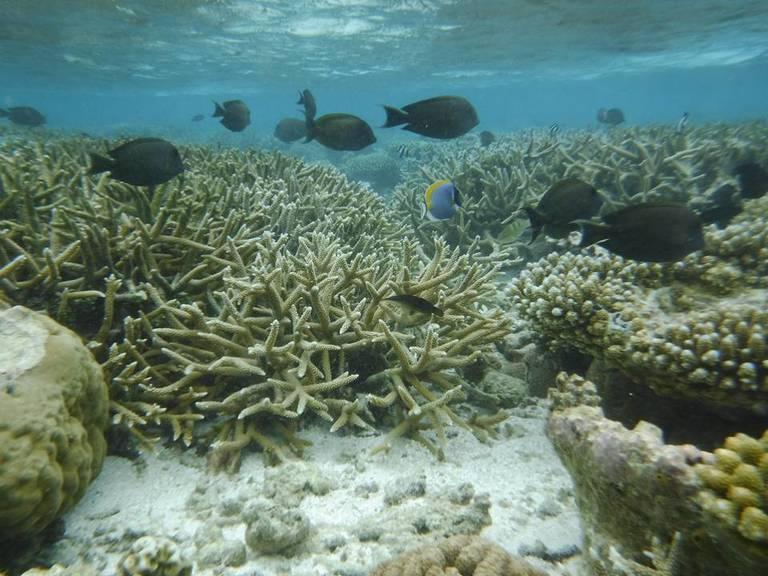
Coral reefs offer a bevy of economic benefits. They are the foundation of many fisheries, and in regions from Florida to Australia, coral reefs help support local tourism. The U.S. National Oceanic and Atmospheric Administration (NOAA) has estimated that coral reefs contribute goods and services valued at approximately $375 billion annually - $8.5 billion around Florida alone.
But pollution, rampant development, climate change and ocean acidification have threatened many coral reefs worldwide. Sudden changes in temperature can lead to coral bleaching, which can weaken coral and even cause these complicated ecosystems to die off.
To that end, a group of researchers at the Hawaii Institute of Marine Biology have been laser-focused on understanding coral by going beyond the factors why many reefs are in rapid decline. According to the Honolulu-based news service Civil Beat, these scientists are trying to breed varieties of “super coral” in an effort to halt the impact of climate change on the world’s oceans.
No, this is not some version of GMO- or laboratory-derived coral. Just as ranchers and animal scientists have developed hybrids of chickens and cattle over the years, scientists at this research center seek new generations of corals that can survive in warmer and more acidic oceans. According to Dr. Ruth Gates, the goal is to study the various polyps that comprise coral reefs and address the factors that contribute to their susceptibility to bleaching – phenomenon that severely weakens, and can soon kill off, these vital ecosystems.
The answers are not quite there yet. Perhaps coral’s strengths and weaknesses are just dependent on these polyps’ parents and lineage. Their resilience, in part, could be due to the partners with which they bond in order to create those magnificently colorful reefs. The bottom line is that with half of the world’s coral dead, Dr. Gates and her team are striving to find the strongest and most resilient coral so that their offspring can survive in the long run. Even though former President Obama created the world’s largest protected environment with last year’s expansion of the Northwestern Hawaiian Islands Marine National Monument, many of these spectacular reefs still face annihilation.
The fight to save the world’s coral is unfolding on many fronts. NOAA is mapping, researching and raising awareness about fragile ecosystems in regions such as the Caribbean. Those efforts are complemented by the Elizabeth Moore International Center for Coral Reef Research & Restoration, which says it has harbored thousands of coral fragments from various species in an effort to rebuild Florida’s reefs. In the Maldives, where many of its coral reefs have suffered from bleaching over the last few years, the Korallion Lab on an remote islands is striving to preserve ecosystems that can secure this nation’s future. And off course, the Australian government has developed a long-term plan to counter the demise of the Great Barrier Reef.
But the research in Hawaii stands out for many reasons, including its testing of “assisted evolution” and “assisted migration” theories in a bid to not just evaluate coral’s demise, but to allow it to rebound in the coming decades. Such study requires expensive equipment – but funding and support from organizations linked to the philanthropist Pam Omidyar and Paul Allen have helped Dr. Gates and her colleagues charge ahead in what has become a desperate race against the clock to secure the future of the world’s coral reefs and the marine life and jobs they support.
Image credit: Leon Kaye

Leon Kaye has written for 3p since 2010 and become executive editor in 2018. His previous work includes writing for the Guardian as well as other online and print publications. In addition, he's worked in sales executive roles within technology and financial research companies, as well as for a public relations firm, for which he consulted with one of the globe’s leading sustainability initiatives. Currently living in Central California, he’s traveled to 70-plus countries and has lived and worked in South Korea, the United Arab Emirates and Uruguay.
Leon’s an alum of Fresno State, the University of Maryland, Baltimore County and the University of Southern California's Marshall Business School. He enjoys traveling abroad as well as exploring California’s Central Coast and the Sierra Nevadas.














